You are using an out of date browser. It may not display this or other websites correctly.
You should upgrade or use an alternative browser.
You should upgrade or use an alternative browser.
#13 Wilt Chamberlain is the GOAT
- Thread starter KingTaharqa
- Start date
R.I.P. Kobe Bean.
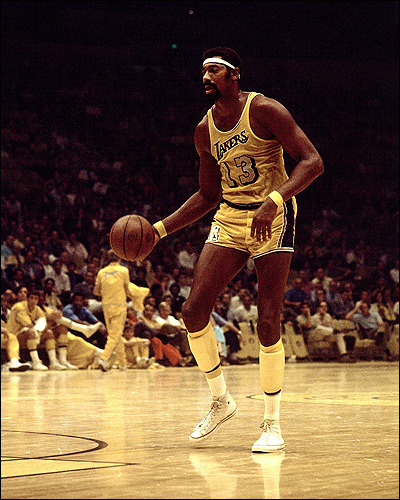
from WILT: Just like any other 7-foot black millionaire who lives next door
"In the pre-season predicitons, no one picked the Lakers to go anywhere. Jerry and Elgin and I were all old, by basketball standards-and all coming off major leg injuries. The rest of the team was an unknown commodity. Happy Hairston, who figured to start opposite Elgin at forward, was very underrated-a solid rebounder and a good man on the fast break-but he had a tendency to get into foul trouble, and he had a reputation for causing dissension by talking about his teammates behind their backs. Gail Goodrich, our other starting guard, had averaged 17.5 points a game for us the previous year, but he had a well-deserved reputation as a spoiled kid-a selfish gunner who dribbled too much and shot too much and sulked when things didn't go his way. Jim McMillian had good potential as a shooter and on defense, but he had only been in the league on year, and he didn't look like he'd ever be much of a rebounder. Some of the other guys figured to help in spots-particularly Flynn Robinson (a dead eye outside shot) and Keith Erickson (an erratic but versatile swing man who hustle and quickness gave us a spark that often made up for his poor shots and wild passes). Overall, though, the experts just didn't think we were strong enough to pose much a threat to the reigning powers in the league-defending champion Milwaukee and the polished, experienced New York Knicks.
The season began in Hawaii, where we practiced and played a few exhibition games. Bill (Sharman)'s practice sessions were smooth and logical and well coordinated, and he began right off by passing out notebooks and diagramming plays, and tellings us he wouldnt' accept the stories that we were an old team that couldn't run.
'I believe in running, fast break basketball,' he told us. 'That's the kind of basketball I played with the Celtics, and that's the kind of basketball I coach.'
I've always liked fast-break basketball, too. It's what I'd played in high school, and I'd missed it ever since. The other Lakers were equally enthusiastic, and when the season began, it quickly became apparent that the the 1971-72 Los Angeles Lakers were going to be something special. We won our first four games-by an average of 20 points a game-lost three of our next five, then didn't lose again for more than two months. From November 5 to January 9, we won 33 consecutive games. And we did it without Elgin Baylor.
On November 4-after a conference with Bill Sharman-Elgin announced his retirement. He was 37, his knees were shot, and Bill didn't feel we could afford the luxury of starting Elgin every night. Bill knew Elgin would be embarrassed as a benchwarmer, so he suggested Elgin retire and make way for Jim McMillian. When Elgin agreed, Jim stepped into the lineup, and we were on our way.
The night of the game that began our winning streak, the coach asked Jerry and me if we would like to be co-captains now that Elgin was gone. Jerry said he felt that he could be more valuable to the team if he could concentrate on playing, not leading. I'd been captain in Philadelphia, and I'd liked the responsibility, so I accepted the Laker captaincy.
We continued winning. Seattle, Portland, Boston, Cleveland, Houston, Milwaukee...like tenpins they fell before us. Everyone was contributing. Jerry and Gail and Mac were all scoring. Happy and I were rebouding. Leroy Ellis and Flynn Robinson and Pat Riley were giving us good spot play off the bench. We were not just winning, we were winning big-by scores like 130-108, 139-115, 129-99, 132-106, 154-132. On December 12, we beat Atlanta to set an all-time record of 21 straight wins. Then someone checked the record books, and found that the all-time winning streak for any professional sports team was 26-by the 1916 New York baseball Giants. On December 22, we broke that record.
It was almost Christmas time-by then, and the players began speculating about what kind of super gifts Jack Kent Cooke might give us for our great record. A few days later, when he gave us each a pen-and-pencil set, we all started bitching and grumbling about what a cheapskate he was. Then I realized he'd given us more for Christmas than any of us had given him. I stopped bitching.
Surprisingly, there weren't any close friendships on the Lakers. You might have expected Jerry and Gail to be close, for example-the two small, white, high-scoring guards who'd lived in Los Angeles a long time. Or maybe me and Mac-both black bachelors who had spent considerable time in New York. That wasn't the case, though. But neither were there any cliques or any real tensions on the team. Just victories. And the more we won, the more superstitious some of the guys became. Jerry refused to change his ratty old sneaks. Gail always made sure his last shot in warmup was a layup. Bill Sharman always switched his pens from his inside coat pocket to his shirt pocket just before the tip-off at each game. Fred Schaus, the general manager, always parked in the same spot before every game.
But neither voodoo nor victories go on forever.
On January 9, in a nationally televised game, Milwaukee beat us, 120-104, to end our 33-game win streak. We lose three of our next five games, then regained our momentum and won our next eight straight.
On March 11, I had a party to celebrate the completion of my house. A year earlier, when Jerry had had a housewarming party, I had been the only member of the team he hadn't invited. Jerry never had given me a satisfactory explanation for that, and I thought about leaving him off my invitation list, too. But that would've been childish. I invited him, and he came, and so did everyone else on the team.
The party lasted all night. It didn't seem to hurt us, though. The next night, we destroyed Buffalo, 141-102, and we went on to win 15 our last 17 games.
We broke every record in the book that year-most wins, most wins at home, most wins on the road, most wins in a row, most 100-point games, highest winning percentage; you name it, we broke it. Our overall record of 69 wins and 13 losses broke the all-time record of 68 and 13 set by my Philadelphia 76ers team in 1966-67, and-not surprisingly-everyone wanted me to compare the two teams. I tried to be diplomatic. I said the two teams had different styles and different personnel, and it was difficult to compare them. Comparisons between players and teams from different years can never be fair to either side; there are just too many variables and too many imponderables. The performance of the Laker team was more satisfying to me than the performance of the 76er team, simply because the 76ers were picked to win the championship, and the Lakers weren't picked to win anything. But if I had to say which team was better, I'd take the 76ers. For one thing, they had a better center-I was five years younger in 1967. The Laker guards-Jerry West and Gail Goodrich-were definitely better, as a pair, than any combination of the 76ers Hal Greer, Wali Jones, and Larry Costello. But the 76er forwards-Billy Cunningham, Chet Walker, and Luke Jackson-were all far superior to either of the Laker forwards, Jim McMillian and Happy Hairston. And the 76ers had more depth than the Lakers.
I'm not saying the 1971-72 Lakers weren't a great team; they were. But all things considered, I don't think they were as great as the 76er team I played on in 1967"
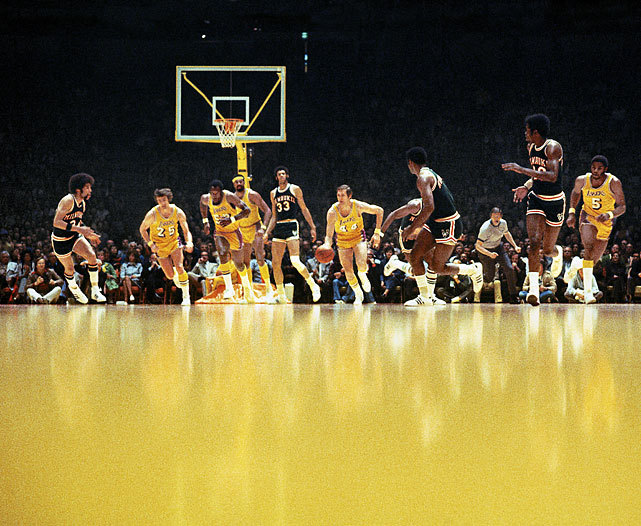
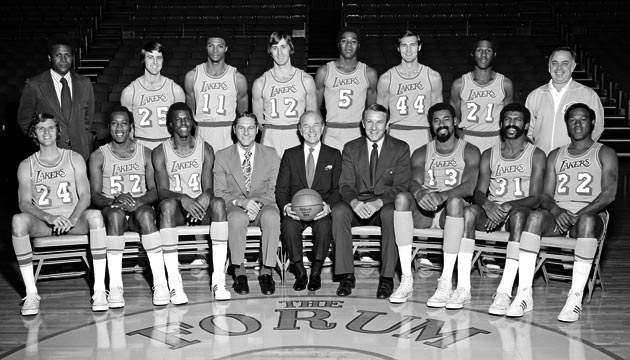
Last edited:
Wilt's era got the most players on the list.
Beal is playing the BK Nets at home tomorrow. We'll see if he can be the first since the GOAT 58 years ago to score 50+ in 5 straight contests.
Last edited:

from WILT: Just like any other 7-foot black millionaire who lives next door
"The Lakers had never won a championship with Elgin Baylor and Jerry West and all those great teams they had, but no one had ever called either of them a "loser." They were tragic heroes; people felt sorry for them. I was the "loser"-the scapegoat-and I knew damn well that I'd be blamed again if we lost this championship, even though I'd played well and jerry should've been the goat for his rotten shooting.
As soon as we got home from New York after the fourth game, I started soaking my hand in the special whirlpool I had built at my new house. I must have soaked it for 30 hours, and every hour or so, I'd try to flex it, you know, close the hand, and at first, I couldn't do it all and it hurt like a son-of-a-bitch. But I kept trying. I'd take my big Great Danes for a walk between treatments, to force myself to close the hand round their leash. I even tried to work a little with a basketball. No damn good.
Then, that night, Saturday night, I had a couple of friends from the Knicks' front office over. I was in the whirlpool when they came, but I got out and played host, and I really believed it when I told them I didn't see how I could play the next night. One of them, Frank Blauschild, watched me pour him some whiskey and just laughed. 'Bullshit!' he said. 'I've been watching you pour. You'll play.' I honestly didn't think so, but the hand was getting gradually better. I could close it a little more, with a little less pain each time.
With Coach Sharman calling those crazy morning practices of his every damn day, I'd been sleeping less than ever all season, maybe just five or six hours a night. But that night, I only slept two, maybe three hours. I was hurting and thinking and worrying, and mostly I was taking turns packing my right hand in ice and soaking it in the whirlpool.
When I got to the Forum for the game Sunday night, I still didn't think I could play. Even after Dr. Kerlan gave me a shot of Celestone, I didn't think I'd make it. The Celestone was only to stop inflammation, not pain. Just in case I could play we didn't want my hand so numb from painkillers that I couldn't feel the basketball.
Dr. Kerlan threw a basketball to me. I caught it-awkwardly, more trapping it between my two padded mitts than actually catching it. But I held it. I threw it back. Well, I didn't really throw it. I sort of pushed it. But it got there.
Ironically, as it turned out, I couldn't have asked for a better start-or finish-to the game. We broke fast, jumping ahead 10-0 before the Knicks knew what hit them, and that took some of the pressure off me. I even jammed in a couple of slam-dunks early.
But, like anything worth waiting for, that championship game didn't come easy. The Knicks closed to 26-24 at the end of the first quarter, and tied us at 53-all at halftime. We got the lead back in the third quarter, then blew them out with a 13-2 blast in the fourth quarter, and won going away, 114-100.
I suppose I could make like a martyr and tell you how much my hand hurt me every minute I was on the floor, but in all honesty, once the game was a minute or two old, I forgot all about the pain and the bandages and everything but winning that game. I played 47 of the 48 minutes, and even I was surprised later that night, in the locker room, when someone showed me the final statistics. I'd hit 10 of 14 shots from the field, got 24 points and 29 rebounds (along with 4 assists & 6 blocks), and held my man, Jerry Lucas, to just 14 points and 9 rebounds. He hit only 5 out of 14 shots from the floor against me, and after the way he'd torn us apart in the first game of the series, a couple of my teammates told me I should always break both my hands before we play the Knicks.
I guess it wasn't really that funny, but I laughed and laughed. When you win, you laugh at anything and everything. And we had won-we, the Lakers, as a team, and me, Wilt Chamberlain, as an individual. I even got a new car for being the most valuable player in the series.
Obviously, I didn't beat New York all by myself. Far from it. We had set records as a team all year, and we won the championship as a team that night. Gail Goodrich, who had eaten Earl Monroe alive at both ends of the court in every game, got 25 points and held Monroe to miserable 4 for 15 from the floor. McMillian got 20 points. Happy got 14 rebounds. Even Jerry-who again hit only 10 of 28 shots would up with a dismal 32 percent from the floor for the entire series-scored 23 points and had nine assists in the championship game.
But defense had been the key to our success all season-particularly in the playoffs, against Milwaukee and New York-and even though I was pleased to have won the MVP award in the (Finals), I have to admit I was a little surprised that I didn't also win it for the regular season. During all those years I was outscoring Bill Russell like crazy, he often won the MVP because people said defense was more important than scoring, and he was the defensive genius. But in 1972, I was the defensive genius and Kareem was the big scorer. In effect, I was Russell, and Kareem was me. So who won the MVP? Kareem. Suddenly, defense wasn't all-important.
Bill Sharman got most of the credit for "transforming" me into a great defensive player-especially after I played so well against Kareem in the Western Division championships.
But it wasn't quite that simple.
I had experience and strength going for me against Kareem. I also had an intangible-the gut-it-out toughness I'd picked up playing schoolyard ball as a kid. Kareem had never done that, and it's hurt his game-as great as he is.
Joe Mullaney was probably more responsible for my success against Kareem than anyone, though. I'd always been a good defensive player-it just wasn't noticed until I stopped scoring-but it was Joe who first talked to me about really stressing defense. And it was Joe who showed me how to play Kareem and force him to take his shots out of position.
Joe was also responsible for about half the key personnel on our championship team. He was the coach who traded for Happy and Gail and Pat Riley, and he was the coach who drafted McMillian.
Unfortunately, he didn't have the opportunity to reap the fruits of his labors.
I'm not trying to downgrade Bill Sharman, though. There's no question about how good he is; he's the man who coached us around some. Coaching, at the pro level, isn't really coaching in the true sense anyway. A big part of coaching is teaching fundamentals, and you just don't do that in the NBA. Sharman doesn't teach Jerry how to dribble, or tell Happy not to expose the ball to the defense for so long when he's driving for a layup. Sharman, like most NBA coaches, is really more a manager or a coordinator than a coach, and-like all managers, in any business-he benefits from the work of his predecessors."

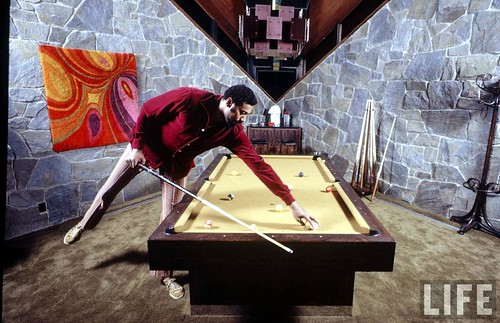
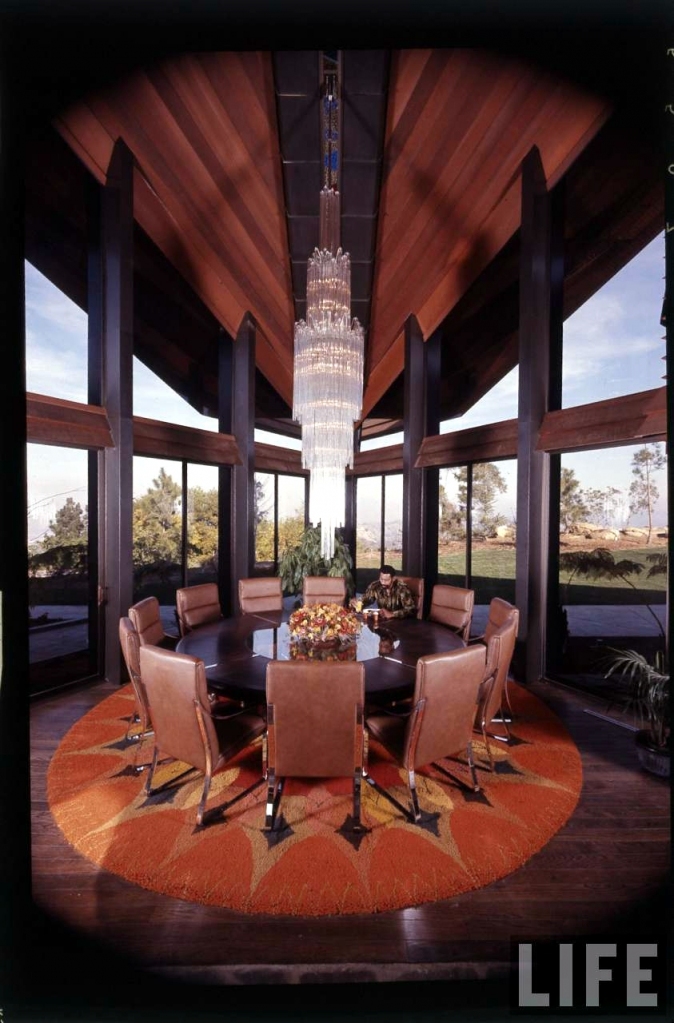
from WILT: Just like any other 7-foot black millionaire who lives next door
"The decision to build a house-or even just to own one-was probably the single most uncharacteristic act of my entire life. I've always been nomadic by nature-a gypsy-and from the time I'd left home to go to college in 1955 until that summer of 1971, I'd never lived in one place for longer than two years. For me to build a $1 million house that would probably take almost two years to complete was quite a gamble. I might want to move out before I could even move in.
I thought about that a lot before I made my decision to go ahead with the house. Finally, I just decided I loved Los Angeles, and would always want to come back here, even if I traveled extensively and lived elsewhere temporarily on occasion.
Actually, I had almost built a house six or seven years earlier, in San Francisco. I bought three-fourths of an acre there for $65,000, but I got traded to Philadelphia before I could get the house started.
When I first came to the Lakers, I tried again. I found a great old house in Trousdale Estates, the most exclusive section of Beverly Hills. It was owned by some movie tycoon who was about to split up with his wife, and it had high, vaulted ceilings and a big movie theater in the living room, and it was just a really fine house. They were asking $465, 000 for it, and no one was interested in buying. I finally negotiated them down to about half that price.
I gave them a deposit and was ready to move in.
The next thing I knew, a television crew was traipsing through the place-without my permission-to do a show about "Wilt Chamberlain's house."
I demanded my deposit back, and forgot about the house.
A couple of years later, when I started looking for land to build on in Los Angeles, I looked primarily along the beach. But most beachfront property is so valuable that it's been divided into small lots, and the streets are congested. That meant I'd have neither the spaciousness nor the privacy I wanted; there would always be sightseers gawking at me and watching my every move. I was renting a home in Trousdale then-a place owned by Billy Rose's sister, Polly-and with neighbors like Elvis Presley, Groucho Marx, and Danny Thomas, I already knew what that was like. People carrying cameras and maps and autograph books were always riding up and down our street and banging on doors and peering in through windows. I wanted no part of that in my house.
If I wanted to live at the beach, then, it seemed the only solution was to live in one of the fashionable oceanside colonies up the coast a bit, where the lots are big enough to provide some protection and insulation. I found a great piece of land in one of those colonies-right behind Governor Ronald Reagan's mansion in Pacific Palisades, about 20 miles northwest of downtown Los Angeles. Unfortunately, the owners wanted $500,00 just for the raw land! There was no way I could afford that-not with what I knew it would cost to build the kind of house I wanted.
Then I found the land I live on now-a beautiful three-acre site in Bel Air, in the Santa Monica Mountains, about seven miles inland from the ocean and 12 or 13 miles from downtown.
I'm only a mile or so off the freeway, so I can drive to the beach in ten or fifteen minutes-and I don't have the congestion and sightseers and high prices I'd have if I lived right on the ocean.
Sightseers occasionally wander by, and try to look in my windows, but I have a large iron fence surrounding my property, and I have closed-circuit TV trained on the electronically controlled front gate to discourage them from trespassing.
My house sits on a peak, with a panoramic, 360-degree view of the entire metropolitan area. On one side, I can see from downtown to the ocean (a magnificent sight on a clear day); on the other side, I can see the sprawling suburbs of the San Fernando Valley (a gorgeous, glittering sight on almost any night).
Because I love the view-and the feeling of freedom that the outdoors gives me-my house is almost completely encased in sliding glass doors. With the glass and the high ceilings-a minimum of nine feet and a maximum of twenty-you almost feel like you're outdoors in every room of the house. You can feel the sun and see the moon and the stars and the surrounding hillside and the city below. I've even brought the outdoors indoors. The swimming pool that curls around the corner of my house flows under one end of the living room, and you can acutally step right into it through a good-sized hole I had cut in the living room floor"

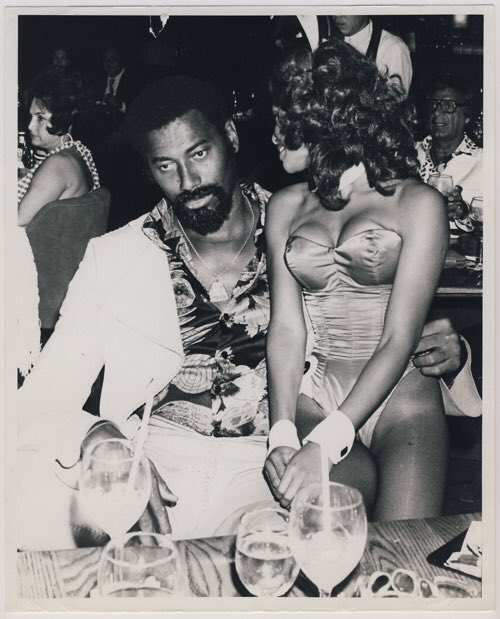
from WILT: Just like any other 7-foot black millionaire who lives next door
"Probably the two questions I get asked the most about my house are 'Aren't you lonely in that big place all by yourself?' and 'Why would you build a house like that when you're not even married?'
In a way, I guess, the two questions are almost the same-and they're both stupid. In the first place, why would I be any more lonely in a big house than a small house? You can only be in one room at a time; what difference does it make if there are three other rooms or 23 other rooms in the house? Besides, you don't have to be alone to be lonely. Loneliness, is a state of mind, not a matter of numbers. I've been far lonelier, at times, in a huge crowd than I've ever been by myself-and I'll bet most people have had the same experience.
When I'm asked why a bachelor like me would build a house like mine, I tend to respond with a speech, rather than an answer. I will never understand why people think married men have some special stability and respectability and obligation that single men cant' have. A single man might as well give up any hope of getting to the top-or even near the top-in business and politics in our society; why, do you know we've had only one bachelor among our (44) Presidents-and that was James Buchanan, who was inaugurated (156) years ago! I want a house-a home-for myself and to share with my friends. Why do I need a wife and children to share it, too?
'Will you ever get married and have kids?' people ask me. I'm not sure. But I do know I'll never father my own children; if I want children, I'll adopt them. As I've already said, I think the overpopulation problem is a big one, and I'm not about to contribute to it. That would be hypocritical. There are plenty of unwanted little kids in this world who could use a good home, and since I have no egotistical, masculine compulsion to produce a lot of little Wilties, I'd like to help them find one.
As for marriage, well, I've always thought that weddings-like funerals-are more for friends and families of the principals than for the principals themselves. None of the Chamberlain boys has exactly rushed into marriage. Oliver didn't get married until he was 28, and Wilbert-who's 40-isn't married yet. I may never have a wife either, in the legal and traditional sense. I can see no reason, in 1973, for the state to have anything to say about the status of two adults who choose to live together. If a man and woman-or two men or two women, for that matter-want to commemorate the beginning of their formal life together with a religious ceremony of some sort, that's entirely up to them. But I don't think the state should be in the business of selling marriage licenses. That's just none of their damn business. If this were the old days, when laws-and custom-prevented women from working, I could understand the need for the state to provide them with some measure of security and protection. But almost any woman who wants to work today can earn a livable wage. It may not always be as much as a man would be paid for the same job-which is absolutely wrong-but it's certainly enough, in most instances, to eliminate the need for the state to use marriage as a vehicle for the protection of women.
My strong feeling about this principle isn't the only reason I've never gotten married-or never even entered into a long-term common-law relationship with a woman. The most obvious reason is that I haven't found the right girl yet-and I may not know the right girl, even if I do find her.
I tend to be very fickle. I get tired of a girl fairly quickly, and when I do, I "fire" her. Who knows-I may already have fired one or two girls who would have made ideal wives for me if I'd kept them around long enough to really get to know them.
I have had girls living with me occasionally, but I think the longest relationship like that I've ever had was three weeks, back in 1967 or '68, with an Australian girl. Maybe I'm just afraid to commit myself fully to another person; maybe I'm afraid that in a long term relationship I'd be too vulnerable, my faults and shortcomings too evident. But I think the biggest reason I'm not married, legally or otherwise, is that I'm a gambler-and smart gamblers don't buck high house odds.
In my 14 years in the NBA, I've had almost 100 different teammates. I've probably also had pretty good relationships with almost as many players on other teams. Of all those players, there was only one-Paul Arizin-who really seemed content with his marriage, and didn't use our road trips to find new ways of cheating on his wife all the time. I'm sure a few of other guys have been happy, faithful husbands, too-but not many of them, judging by what I've seen. I'm not just talking about the guys with playboy reputations either; some of the most active philanderers in the NBA are players who have wholesome, all-American-boy reputations.
For all my image as a swinger-and my personal disdain for the institution of marriage-I take a dim view of infidelity. To my knowledge, I have never gone to be with another man's wife-and I never will. I think that once a person makes a commitment of love to another person-whether in legal marriage or not-that commitment should be fulfilled.
I'm not sure I could keep such a commitment myself; that's why I haven't made one. I've never actually told a girl 'I love you.' I guess I like variety and change too much. I think there are too many wonderful, beautiful women in this world to commit myself to just one. Maybe, as I grow older, I'll change. But in pro basketball, the separations from your loved ones can be too frequent-and the temptations on the road too overwhelming-for a man of my appetite to try and combine basketball and a one-man, one-woman relationship"

Respect to our Nigerian brother in Lagos.

